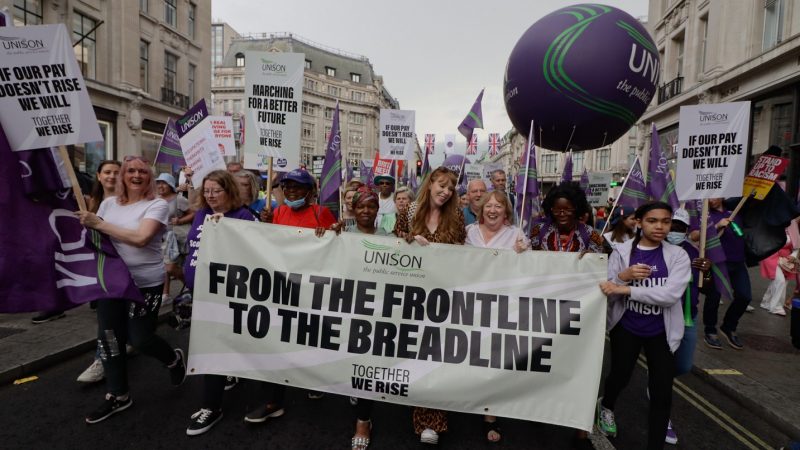We need a new approach, not just to energy, but our whole economy - one that puts people before profit

This winter continues to be the harshest in many decades for thousands of families in cities and towns across the country.
As the cold snap continues to bite, many are choosing to ration their heating due to the astronomically high energy bills. For the millions of people with prepayment meters some will simply not be able to afford to top-up at all.
Wolverhampton, a medium sized city in the West Midlands already has 15 food banks, but this winter the Labour Council had to establish 38 ‘warm hubs’ across the city to protect those struggling with the cost of living from going cold.
How can it be that in one of the richest countries on the planet there are millions of people in Britain who are struggling to heat their homes?
Of course Russia’s indefensible war in Ukraine has played a part in the surge of energy bills, but the problems go much deeper and the blame also lies much closer to home.
When the war broke out the energy companies sniffed an opportunity to make a lot of money. They hiked prices for consumers and have raked in eye-watering profits. In the second quarter of this year alone, BP made £7 billion in profits. They have handed billions of pounds to their shareholders who must be laughing all the way to the bank. But working people don’t find it very funny.
Don’t forget that BP used to be majority publicly owned until it was sold off by Thatcher’s Tory government in the 1980s. This decision may have made a lot of money for the Tories’ mates, but it left our country poorer and insecure.
The modern day Thatcherites who’ve passed through Downing Street in the last twelve months have all refused to force the energy companies to lower bills. Liz Truss’ energy price cap, implemented by Rishi Sunak, pegged energy bills at an already unaffordable rate and cost taxpayers billions of pounds. Meanwhile the profiteering energy companies get off lightly.
By contrast, Labour’s policy shows different priorities. If Labour was in power, Keir Starmer has said he would implement a windfall tax on the profits of British oil and gas companies. But unlike the Tories, this tax would be backdated and the tax breaks awarded to these companies would be closed. The money raised would be used to cut energy bills.
But the future outlined by Labour is a stark contrast to the grim present. We live in a divided country. Levelling up has been a sham. It has had no impact on the experiences of people in the West Midlands. We have seen cultural institutions like the Lighthouse Cinema in Wolverhampton disappear while the Tories ignore us, in round after round of levelling up funding announcements. The regional divide is stark. In Wolverhampton we have lower pay than average for the UK, we have lost cultural institutions and high levels of unemployment.
Dealing with the energy crisis is not enough. We must be ambitious for areas like Wolverhampton. We must address the scourge of low pay which impacts areas like ours the most. Workers across the UK need a pay rise and they need it now.
The last Labour Government introduced the National Minimum Wage, but it’s been kept low by the Tories for twelve long years with workers seeing pay cut after pay cut due to inflation. It is no coincidence that profits rise whilst real terms pay is cut – it is the nature of the exploitative economy the Tories have built.
To build a society that works for all of us we can’t focus on a single issue. We must address energy, low pay, financial difficulties of key community institutions. Only then will our country work for people and not profit.
The task is clear – we must create an economy that delivers people warm homes, an economy that delivers secure employment, and an economy where workers are listened to rather than being treated like an inconvenience. We need a new economy that recognises people are more important than profit.
Mish Rahman is a member of the Labour Party’s National Executive Committee
Image credit: Steve Eason – Creative Commons
To reach hundreds of thousands of new readers we need to grow our donor base substantially.
That's why in 2024, we are seeking to generate 150 additional regular donors to support Left Foot Forward's work.
We still need another 117 people to donate to hit the target. You can help. Donate today.



